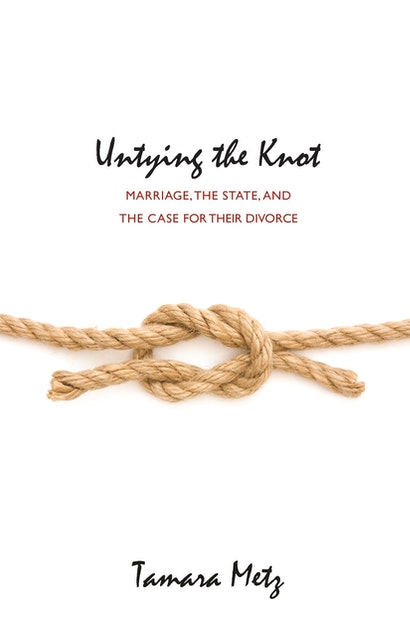This review appeared in Policy magazine in Spring 2010.
In many Western countries, marriage is a subject of passionate political contention. Gay marriage triggers controversy wherever it is proposed. Conservatives suggest ‘covenant’ marriages with stricter obligations than imposed under current marriage law. Religions and cultures that permit men to take multiple wives challenge monogamous marriage. Participants in these debates disagree on much but concur on one thing: the state should decide what marriage means.
Tamara Metz questions this assumption. In her book Untying the Knot: Marriage, the State, and the Case for Their Divorce she argues that a liberal state should not determine which relationships count as marriages. Disputes over how to define marriage show that there is no consensus on its meaning. The state should see marriage in the same way it sees religion, another subject on which agreement seems impossible, as a private matter in which governments should not interfere. There are other ways of promoting long-term relationships and protecting the parties to them.
Liberal thinkers on marriage
Core liberal ideas suggest that marriage and state should be separate, but, historically, leading liberal thinkers have not called for their separation. Metz shows that while John Locke—a leading liberal figure on the separation of church and state — and John Stuart Mill both applied liberal principles to marriage, neither saw a clear dividing line between marriage and the state. Both assumed that marriage, unlike religion, would be ‘established’ — an institution officially recognised and regulated by the state.





